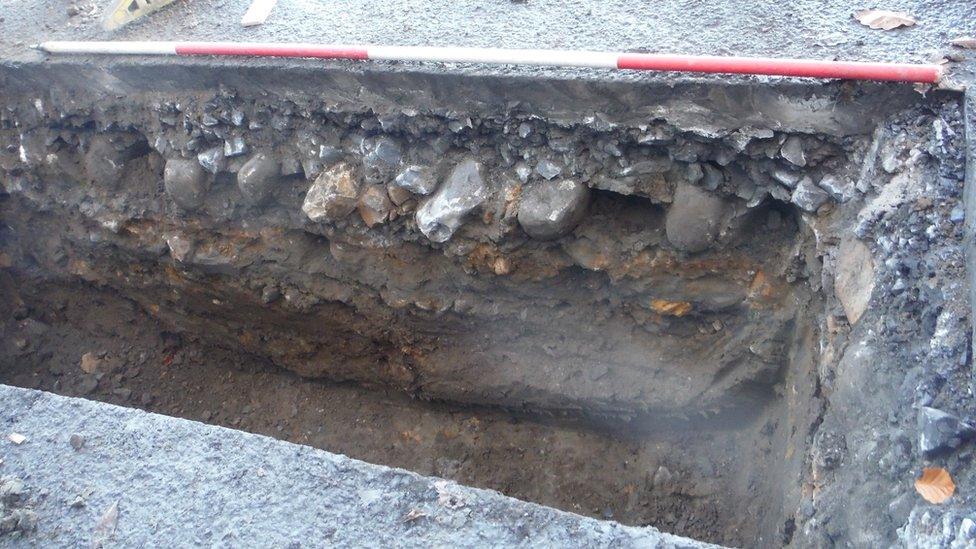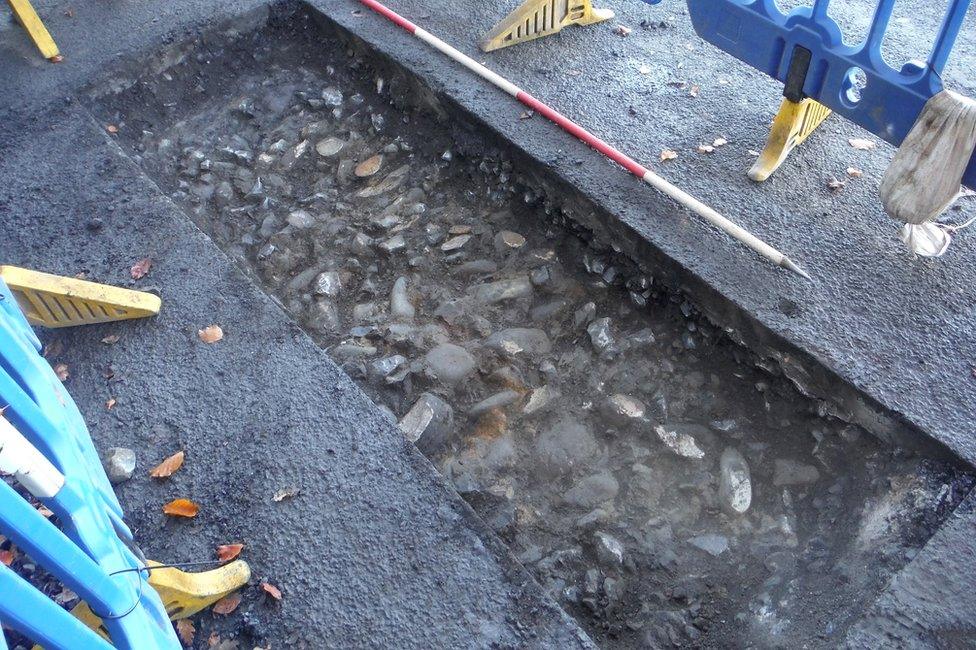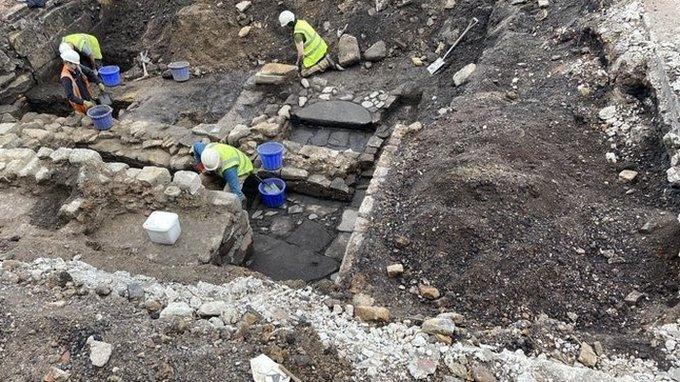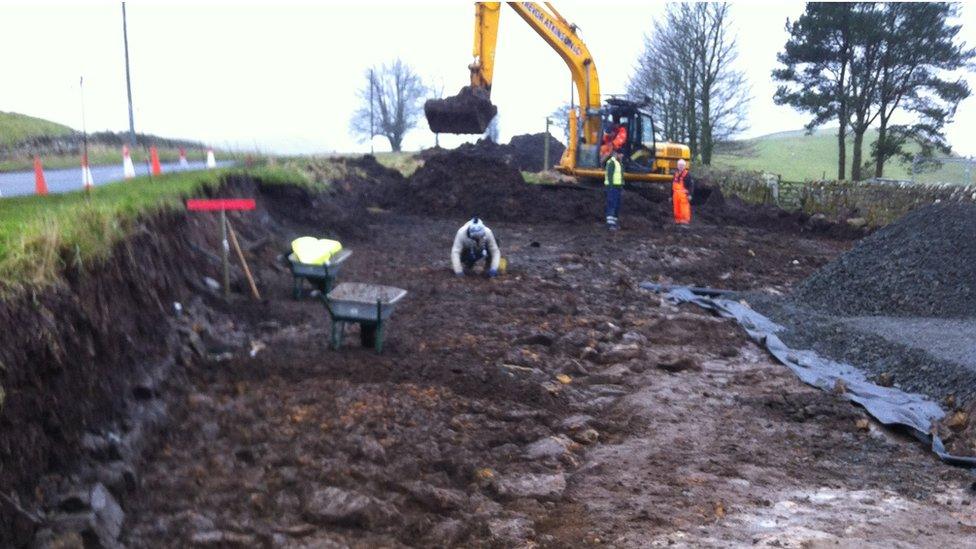Roman road remains uncovered in Northumberland
- Published

The remains are part of The Stanegate - a Roman road which ran east-west south of Hadrian's Wall
Remains of a Roman road which pre-dates Hadrian's Wall have been uncovered in Northumberland.
The find, which is almost two thousand years old, was made during work on the water network near Settlingstones.
They are thought to be from the road's foundations and built by Agricola or his successors about AD80, although no evidence of its exact date was found.
Archaeologists said given its location it was an "important part" of the early northern Roman frontier.
The ancient remains were discovered by Northumbrian Water when it began improvement works at the site of The Stanegate road, which linked Corbridge and Carlisle.
Philippa Hunter, from Archaeological Research Services Ltd, which worked on the site, said: "While monitoring the excavation pit, our archaeologist identified a deposit of compacted cobbles thought to be the remains of the Roman road's foundations."
The route was constructed using "rounded cobbles" set in a layer which measured around 15cm (6in) deep, with around 25cm (10in) of gravel surfacing laid on top.
"Unfortunately no dating evidence or finds have been recovered to confirm the precise date of the archaeological remains," Ms Hunter added.
"However, given the location of the cobbles along the projected route of the Roman road and its depth below the modern road surface, we are confident the remains identified form an important part of the early northern Roman frontier."

The ancient route was constructed with a base of "rounded cobbles" which were topped with gravel

Follow BBC North East & Cumbria on Twitter, external, Facebook, external and Instagram, external. Send your story ideas to northeastandcumbria@bbc.co.uk, external.
Related topics
- Published28 July 2020

- Published6 February 2016
